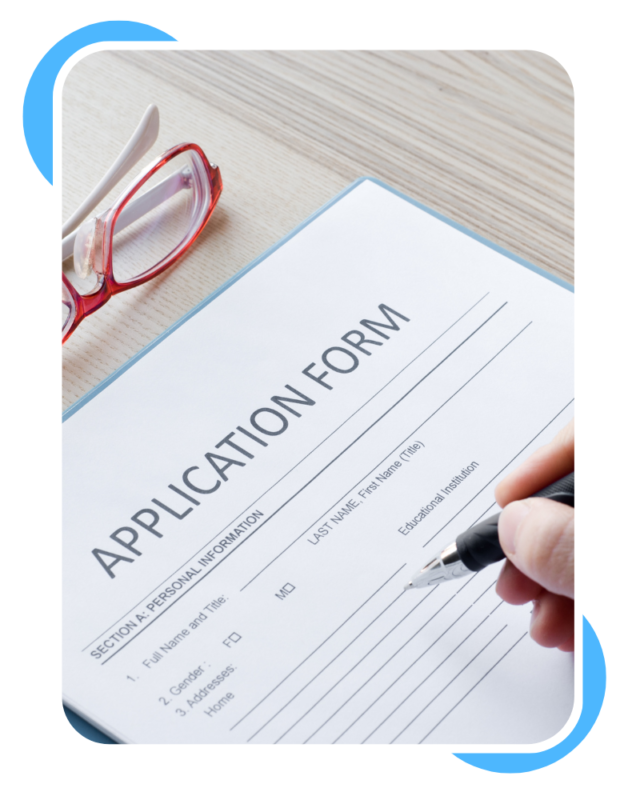
IAS exam full form is Indian Administrative Service. The Commission has made the schedule for the IAS Exam UPSC Mains Exam 2022 available on its website. On July 6th, the DAF application form 2022 was made available on the UPSC website. The IAS Prelims 2022 test was held on June 5, 2022, while the Mains exam will begin on September 16th, 2022. The official IAS Exam notification was released on February 2, 2022, and the application deadline for the IAS was February 22, 2022. Candidates may sit for the IAS Exam 2022 if they successfully completed the application process.
One of the most difficult competitive tests in India is the Civil Services Examination, which is also known as the Indian Administrative Service (IAS), originally known as the Imperial Civil Service (ICS). The All India Administrative Civil Service officer recruitment process is managed by the Union Public Service Commission.
The top administrative branch of the Indian government is the Indian Administrative Service. IAS is the top administrative position in terms of hierarchy among the 24 services, including IPS, IFS, etc. The Union Public Service Commission, the primary hiring organisation, administers the Civil Services Examination (CSE), also known as the IAS exam, annually (UPSC). The executive branch of government in India is made up of the IAS, the country’s permanent bureaucracy. It is one of the three All India Services, and the Union Government, State Governments, and public-sector organisations can all hire members of its cadre.

IAS Exam Pattern & Syllabus | IAS Exam Dates 2022 Eligibility
What is UPSC Exam is one of the most often asked queries among candidates for government jobs. Actually, the UPSC Civil Services Examination is what is more often referred to as the IAS Exam. One of the exams the Union Public Service Commission administers to find qualified candidates for the Indian civil services, including the IAS, IPS, IFS, and other associated services, is the UPSC Civil Services Examination (CSE). The UPSC Prelims, UPSC Main, and the personality test or UPSC Interview are the three parts of this test.
The UPSC Preliminary Examination, which is the screening exam and is hence qualifying in character, is the first step of the IAS Exam. The final merit does not take the UPSC Prelims exam score into account. However, the grade in GS Paper-I is crucial in determining the UPSC Prelims Exam cutoff. Unlike the UPSC Civil Services Mains Exam, the IAS Prelims Exam has two objective-type MCQ-based papers. The nine papers that make up the UPSC Mains Exam are a descriptive exam.
This article will cover the UPSC exam definition, prerequisites, IAS exam curriculum, IAS test format, and other crucial IAS exam information.
IAS Exam Date | IAS Exam Schedule for 2022
On June 5, 2022, UPSC administered the IAS Prelims 2022 exam in offline format. The IAS Mains test will start being administered on September 16th, 2022. Candidates who pass the preliminary examination, the first stage of the IAS Exam, will be eligible to take the IAS Mains.
| IAS Exam 2022 | Important Dates |
|---|---|
| IAS Exam Notification 2022 | 2nd February 2022 |
| IAS Exam Last Date of Application form | 22nd February 2022 |
| IAS Prelims Date 2022 | 5th June 2022 |
| IAS Mains Date 2022 | 16th September 2022 Onwards |
| IAS Exam Final Result | Will be announced soon |

IAS Exam Eligibility
Candidates must review the IAS 2022 eligibility requirements before submitting an application for the IAS Exam. The eligibility requirements, including age restriction, educational requirement, nationality, and number of attempts, are listed below. Candidates must abide by these requirements.
Candidates must possess the necessary academic credentials in order to sit for the IAS Exam in 2022. The educational requirements you have to know about IAS exam are listed below.
Age for IAS exam must be at least 21 years old. This indicates that the applicant must be at least 21 years old on the first of the exam year. For instance, if the candidate is registering for the 2022 preliminary exams, he or she must be older than 21 by August 1, 2022.
The maximum age is also determined on August 1st. This means that if a candidate plans to sit for the 2022 preliminary exams, he or she must be within the specified maximum limit by August 1, 2022. For each category, a different upper age limit has been set, as shown below.
Although the age limit for candidates in the general category is 32, this does not mean that they can retake the exam as often as they like. The number of times this exam may be taken is limited, and again, this varies for various categories.
Note: Candidates who are physically challenged or disabled and fall under the general category will be given the benefit of nine tries up until the age limit set by the UPSC, which is 42 years.
Applicants for the IAS Exam must have certain nationality conditions. The candidate must be:
a person of Indian descent who has immigrated to India with the intention of staying permanently from countries such as Pakistan, Burma, Sri Lanka, the United Republic of Tanzania, Kenya, Uganda, Ethiopia, Zaire, Malawi, and the countries of East Africa are Zambia, Malawi, and Vietnam.

IAS Exam Pattern
There will be three stages to the IAS Exam: The Preliminary, Main, and Personality Test. The Indian Civil Services will hire candidates who pass all three rounds. Candidates must pass each qualifying round in order to participate in the subsequent one of the IAS 2022. Because of this, it’s essential to fully comprehend the IAS Exam pattern and devise a plan for doing the UPSC preparation. The IAS 2022 exam pattern for the preliminary and main rounds is listed below.
There are two papers in the IAS Prelims Exam: General Studies 1 and CSAT (General Studies Paper 2). CSAT is a qualifying exam, and in order to take it, you must obtain a minimum score of 33 percent on this examination. This implies that your choice will be defined by the General Studies paper. The question will receive a negative grading of one-third of the total marks. The Prelims test will consist of MCQs in an objective format.
| Paper | Duration | Questions | Marks |
| IAS Exam Paper 1 | 2 Hours | 100 | 200 Marks |
| IAS Exam Paper 2(CSAT) | 2 Hours | 80 | 200 Marks |
Those who passed the Prelims exam will be eligible for the Mains rounds, which is the second level of the IAS Exam. The Mains exam is a written descriptive test with nine papers. Candidates may choose any subject they like from a list of 48 subjects for Papers VI and VII, which are optional. While Paper-A and Paper-B are qualifying in nature, other papers are of a merit ranking kind.
| IAS Exam Paper | Subject | Nature of the Paper | Total Marks | Duration |
| Paper A | Compulsory Indian language | Qualifying | 300 | 3 Hours |
| Paper B | English | 300 | 3 Hours | |
| Paper I | Essay | Merit Ranking | 250 | 3 Hours |
| Paper-II | General Studies I | 250 | 3 Hours | |
| Paper -III | General Studies II | 250 | 3 Hours | |
| Paper-IV | General Studies III | 250 | 3 Hours | |
| Paper-V | General Studies IV | 250 | 3 Hours | |
| Paper-VI | Optional I | 250 | 3 Hours | |
| Paper-VII | Optional II | 250 | 3 Hours |
- Candidates can choose to write in English, Hindi, or any other language listed in the Indian Constitution’s 8th Schedule when taking the IAS Mains test.
- Candidates will be invited to the round of the personality test if they pass the Mains exam.
- The ultimate score will be determined by the candidates’ performance in the IAS Exam’s Mains exam and Personality Test.
The IAS Exam’s final round, the Personality Test round with the UPSC board members, will be held for applicants who passed the Mains stage, as we have already informed. Candidates will be questioned on a wide range of subjects throughout this round. The UPSC Bhavan in New Delhi will host this IAS Exam round.

IAS Exam Syllabus
The papers for the UPSC Prelims and UPSC Mains follow a comprehensive syllabus. In order to better cover the IAS Exam syllabus, make sure you get the mini list for the UPSC syllabus.
The IAS Pre exam is the first round of the selection process, and there are two General Studies papers in the Prelims syllabus (CSAT). General Studies II is a merit-based exam, whereas CSAT is a qualifying exam.
The following topics are covered in the IAS Syllabus for the IAS Pre Exam:
- Important Current Events on a National and International Scale
- The Indian National Movement and its history
- Physical, social, and economic geography of India and the world are covered in Indian and World Geography.
- Constitution, political system, panchayati raj, public policy, rights issues, etc. of Indian politics and governance.
- Social sector initiatives, poverty, inclusion, sustainable development, etc, are all aspects of economic and social development.
- Environmental Ecology, Biodiversity, and Climate Change: General Issues without the Need for Subject Specialization Basic Science
The Civil Services Aptitude Test, or CSAT, is another name for the GS-II of the IAS Pre exam. The IAS syllabus for this paper covers the following topics:
- Comprehension
- Interpersonal abilities, particularly communication abilities
- Analytical thinking and logical reasoning
- Making decisions and solving problems
- General mental ability
- Simple mathematics (numbers and their relations, orders of magnitude, etc., – Class X level), interpretation of data (charts, graphs, tables, data sufficiency, etc., – Class X level)
Nine theory exams are included in the IAS Mains test, and seven of them are used to create the merit list. The other two papers are in English and Indian Language, and both are of a qualifying nature. Two additional optional papers of 250 points each will be offered. Out of the 48 optional subjects listed by the UPSC, candidates may select anyone.
Essays on many topics may be asked of candidates. It will be required of them to write clearly and organise their views. For precise and effective expression, credit will be granted.
- Indian culture will highlight the key elements of literature, art, and architecture from antiquity to the present.
- Significant events, people, and topics from the middle of the eighteenth century until the present in modern Indian history.
- The Freedom Struggle: its numerous phases, significant participants, and contributions from various regions of the nation.
- Consolidation and reorganisation within the nation upon independence.
- Events from the 18th century will be covered in History of the World, such as the Industrial Revolution, World Wars, redrawing of national borders, colonialism, and decolonization, as well as political philosophies like communism, capitalism, socialism, etc.—their manifestations and social impacts.
- Important characteristics of Indian society, India’s diversity. Population and related difficulties, poverty and developmental issues, the role of women and women’s groups, urbanization’s problems and solutions. Globalization’s effects on Indian society include social empowerment, regionalism, communalism, and secularism.
- Important aspects of the physical geography of the world.
- Distribution of important natural resources around the world, especially in South Asia and the Indian subcontinent; the reasons why primary, secondary, and tertiary sector industries are situated in different parts of the world, including India; Critical geographic features, including waterbodies and ice-caps, as well as changes in flora and fauna and the impacts of such changes. Important geophysical occurrences, such as earthquakes, tsunamis, volcanic activity, cyclones, etc.
- Historical foundations, changes, key provisions, features, and the fundamental structure of the Indian Constitution.
- Functions and duties of the Union and the States, problems and difficulties with the federal system, obstacles with the devolution of authority and resources to local levels.
- separation of powers among multiple agencies, institutions, and processes for resolving disputes.
- Comparison of the organisation, operation, conduct of business, powers & privileges, and issues resulting from the Parliament and State Legislatures of India with those of other nations.
- Structure, operation, and role of the Executive and Judicial branches of government; Ministries and Departments; pressure organisations; formal/informal associations; and their impact on politics.
- The Representation of People’s Act’s key characteristics.
- appointment to various constitutional positions, as well as the exercise of various constitutional bodies’ authority, functions, and duties.
- Statutory, regulatory, and various quasi-judicial entities, as well as government interventions for various sectors’ development and problems resulting from their planning and execution.
- The role of NGOs, SHGs, diverse groups and associations, funders, charities, institutional, and other stakeholders in development processes and the development industry.
- The creation of systems, legislation, institutions, and bodies for the protection and improvement of these vulnerable parts of the population; welfare programmes for vulnerable segments of the population by the Centre and States; and the implementation of these programmes.
- issues pertaining to the growth and administration of the social sector and related services in the areas of health, education, and human resources.
- issues involving hunger and poverty.
- e-governance applications, models, accomplishments, limitations, and possibilities; citizens charters, openness & accountability, and institutional and other measurements are important parts of government.
- Civil services’ function in a democracy.
- Relationships between India and its neighbours. Groupings and agreements on a bilateral, regional, and/or international level including India and/or affecting India’s interests Political and policy implications for India’s interests and the Indian diaspora in developed and emerging nations.
- Important international organisations, agencies, and forums: their composition and objectives.
- Indian economy, including planning, resource mobilisation, growth, development, and employment difficulties. inclusive growth and the problems it raise.
- Budgeting by the government. major crops, cropping patterns in various regions of the nation, various irrigation methods and systems, as well as problems and restrictions relating to the storage, transport, and marketing of agricultural products;
- E-technology to the farmers’ benefit issues including minimum support prices, direct and indirect farm subsidies;
- Public Distribution System: goals, operation, restrictions, and redesign; buffer stock and food security concerns; technology missions; animal husbandry economics.
- Indian food processing and allied industries: size and importance, geographic distribution, requirements upstream and downstream, supply chain management.
- Indian land reforms. economic impacts of economic liberalisation, changes in industrial policy, and how this change industrial growth
- Infrastructure includes things like energy, ports, roads, airports, and railroads.
- Investment strategies. Applications and impacts of science and technology breakthroughs in daily life Indigenization of technology and the creation of new technology are achievements of Indians in science and technology.
- awareness of concerns connected to intellectual property rights as well as IT, space, computers, robots, nanotechnology, and biotechnology.
- Environmental impact assessment, conservation, and pollution and degradation of the environment Disaster management and disasters.
- links between the growth and dissemination of extremism.
- the part played by outside state and non-state entities in posing threats to internal security.
- internal security threats posed by communication networks, the media’s and social networking sites’ contribution to these threats, the fundamentals of cyber security, and money laundering and its mitigation.
- Border region security concerns and their management; connections between organised crime and terrorism The mission of various security units and organisations
In this essay, the candidates will be put to the test on their attitudes toward and methods for resolving disagreements with others as well as their approach to issues of integrity and probity in public life. The case study method may be used in questions to ascertain these elements.
We’ll cover the broad topics listed below. Ethics and Human Interaction: The purpose, factors, and effects of ethics in human behaviour; dimensions of ethics; ethics in interpersonal relationships, both private and public.
- Human Values: the importance of family, society, and educational institutions in instilling values; lessons from the lives and teachings of great leaders, reformers, and administrators.
- Moral and political attitudes, social influence, and persuasion are all aspects of attitude that include its content, structure, and function as well as its relationship to cognition and behaviour.
- Ability and core principles for the civil service, including honesty, objectivity, and partisanship; loyalty to the public good; empathy; tolerance; and compassion for the weaker groups.
- Emotional intelligence concepts, as well as their benefits and use in governance and administration. contributions from Indian and international moral philosophers.
- Public/Civil Service Values and Ethics in Public Administration: Status and Issues; Ethical Concerns and Dilemmas in Public and Private Institutions; Laws, Rules, Regulations, and Conscience as Sources of Ethical Guidance; Accountability and Ethical Governance; Strengthening of Ethical and Moral Values in Governance; Ethical Issues in International Relations and Funding; Corporate Governance.
- Concept of public service; philosophical underpinnings of governance and probity;
- Information exchange and transparency in government, the right to information, codes of ethics and conduct, citizen’s charters, workplace culture, the effectiveness of service delivery, the use of public monies, and issues with corruption are some other topics that are covered. Case studies on the aforementioned problems.
Optional Subject -Paper I and Paper-II (250 Marks Each)
List of IAS Exam Optional Subjects (Mains)
Because they make up 500 out of the 1750 total marks in the UPSC Main Examination, Optional Subjects are quite significant for the UPSC Exam. The IAS Exam offers around 45 alternative subjects, many of which are in the literature category. The list of all optional subjects offered for the UPSC Exam is provided below.
| Agriculture | Animal Husbandry and Veterinary Science | Anthropology | Botany | Chemistry |
| Civil Engineering | Commerce and Accountancy | Economics | Electrical Engineering | Geography |
| Geology | History | Law | Management | Mathematics |
| Mechanical Engineering | Medical Science | Philosophy | Physics | Political Science and International Relations |
| Psychology | Public Administration | Sociology | Statistics | Zoology |
The following languages’ literature is included in the list of UPSC optional subjects for the UPSC Mains test, from which you can select the one that best suits your interests:
| Assamese | Bengali | Bodo | Dogri | Gujarati |
| Hindi | Kannada | Kashmiri | Konkani | Maithili |
| Malayalam | Manipuri | Marathi | Nepali | Odia |
| Punjabi | Sanskrit | Santali | Sindhi | Tamil |
| Telugu | Urdu | English |
After the UPSC Mains Exam, those who are chosen proceed to the third and final stage of the IAS Exam, the Personality Test/Interview. Here, a knowledgeable and impartial panel conducts the interviews with the applicants. The candidate’s DAF (Detail Application Form) will be available to this board.
The purpose of the interview round is to evaluate the candidate’s social skills and interest in current events. The board’s goal is to assess each candidate’s suitability on a personal level for a career in public service.
Candidates may conduct interviews in the language of their choice because translators will be provided by UPSC.

IAS Exam Preparation Techniques
Due to the extensive UPSC syllabus and intense competition, the IAS Exam is one of the most difficult tests in India. However, you can pass the UPSC test on your first try if you follow a disciplined preparation plan and receive the appropriate coaching. A step-by-step preparation plan for the UPSC Exam has been outlined by us. This will also show you how to pass the UPSC exam on your first try. Let’s examine the systematic approach to preparing for the IAS Exam.
How To Clear IAS Exam?
Clearing the Indian Administrative Service (IAS) exam requires dedication, hard work, and a well-planned strategy. Here are some tips that can help you clear the IAS exam:
Self-study is a viable option for passing the IAS exam. However, this “textbook based strategy” of independent study takes more time than studying with the aid of professional coaching and appropriate materials.
Nowadays, unless the candidate began their preparation very early, it is uncommon to witness an applicant who successfully passed the UPSC CSE in his or her first attempt purely by self-prepared.
This is due to the fact that completing the extensive UPSC CSE syllabus solely by self-study takes a long time—typically many years.
Self-study alone should not be relied upon by working professionals or college students who only have a few hours per day to dedicate to UPSC CSE preparation. They should look for a strategy that would enable them to efficiently and quickly cover topics.
In conclusion, even if self-study is generally less expensive, it is not advised for candidates who view time as the most valuable resource in life.
IAS exam preparation require solving mock papers. Many students who understand the value of practice in achieving success gain knowledge by incorporating mock tests into their study plans.
This test-based learning approach is quicker than text-based learning.
As part of the Clear IAS Test-based methodology, we support candidates’ learning by allowing them to take 40 online mock tests.
In this approach, the applicant completes all of the learning on their own, except from using mock exams as practice.
Even while this method is more effective than relying entirely on textbooks for preparation, you can learn more quickly and deliberately if you have the opportunity to get instruction directly from knowledgeable instructors, whether online or in person.
There is no reason to feel guilty about receiving the right training to advance your knowledge and abilities.
Both online and offline UPSC coaching would speed up hopefuls’ subject-matter learning. It will preserve priceless youth.
This will provide you with all the tools you need, including study materials, practise tests, advice, specialised classes for every IAS exam subject, and strategies to improve your grades.
But not all coaching is created equal.
There are a few coaching services that offer excellent direction and training focused on exams. Having said that, there are thousands of platforms and institutions that charge aspirants thousands of rupees in fees without providing any value.
Many traditional coaching institutions use methods that are ineffective for understanding the most recent UPSC standards and shifting examination trends.
This is something candidates should consider before commencing any coaching.
Avoid following only popular trends or marketing.
Try to evaluate the faculty’s credibility and the coaching’s quality on your own.

IAS DAF Form
Those who passed the IAS Prelims exam in 2022 are not eligible to apply for the IAS Mains test in 2022. On the UPSC website, the IAS Mains 2022 DAF form has been made available. The UPSC DAF application form may be submitted beginning on July 6, 2022, and ending on July 15, 2022.
Candidates must do the following actions in order to apply for IAS Exam:
Candidates are urged to have the necessary paperwork on hand before completing the application form to make the process simpler. The required documentation is listed below:
- Valid phone number and email address.
- Photograph and signature scans
- Details of a valid photo ID card.
- Additional documentation is needed (if applicable).
- Academic and personal information
- Debit/credit card information for fee payments, etc.
Both online and offline methods are available for paying the IAS Exam fees. Candidates must use a credit card, debit card, Rupay card, or internet banking to make payments online. Candidates must download the e-challan and pay the fee in cash at an SBI bank to make an offline payment.
| Category | Application Fees |
| General and OBC | INR 100 |
| SC/ST/PWD and Female | Exempted |
A total of 1011 positions, including IAS, IFS, IRS, and IPS, have been declared vacant. The UPSC announced a total of 816 vacancies earlier in the IAS Exam, 2022 official announcement, which was published by the commission. But thereafter, UPSC increased the number of IAS openings to 1011. Let’s look at the IAS vacancies by year.
| Year | Vacancies |
| 2022 | 1011 |
| 2021 | 712 |
| 2020 | 796 |
| 2019 | 896 |
| 2018 | 759 |
For the IAS Exam, candidates are free to select from among the following testing centres. Additionally listed below are the IAS Exam prelims testing locations. A candidate’s preference must be indicated on the IAS Application form.
| List of IAS Prelims Exam Centre | ||
| Aurangabad | Jabalpur | Ranchi |
| Dehradun | Leh | Tirupati |
| Aizawl | Imphal | Pune |
| Bilaspur | Jorhat | Siliguri |
| Bareilly | Jammu | Shillong |
| Gangtok | Mysore | Vishakhapatnam |
| Coimbatore | Kolkata | Thiruvananthapuram |
| Dharwad | Ludhiana | Varanasi |
| Ghaziabad | Panaji (goa) | |
| Agra | Gurgaon | Port Blair |
| Delhi | Lucknow | Udaipur |
| Ajmer | Gwalior | Prayagraj (Allahabad) |
| Aligarh | Indore | Raipur |
| Dispur | Madurai | Vellore |
| Faridabad | Mumbai | Vijayawada |
| Agartala | Gorakhpur | Patna |
| Cuttack | Kozhikode (Calicut) | Tiruchirapalli |
| Anantpur (Andhra Pradesh) | Itanagar | Rajkot |
| Ahmedabad | Hyderabad | Puducherry |
| Gaya | Nagpur | Warangal |
| Bhopal | Jodhpur | Shimla |
| Chandigarh | Kochi | Srinagar |
| Gautam Buddh Nagar | Navi Mumbai | |
| Bangalore | Jaipur | Sambalpur |
| Chennai | Kohima | Thane |
The following list includes the Mains exam locations.
| IAS 2022 Mains Exam Centres | ||
| Coimbatore | Kolkata | Thane |
| Cuttack | Kozhikode (Calicut) | Thiruvananthapuram |
| Dehradun | Lucknow | Tiruchirapalli |
| Delhi | Ludhiana | Tirupati |
| Dharwad | Madurai | Udaipur |
| Dispur | Mumbai | Varanasi |
| Faridabad | Mysore | Vellore |
| Gangtok | Nagpur | Vijayawada |
| Gaya | Navi Mumbai | Visakhapatnam |
| Ghaziabad | Gautam Buddh Nagar | Warangal |
| Aurangabad | Jabalpur | Rajkot |
| Bangalore | Jaipur | Ranchi |
| Bareilly | Jammu | Sambalpur |
| Bhopal | Jodhpur | Shillong |
| Bilaspur | Jorhat | Shimla |
| Chandigarh | Kochi | Siliguri |
| Chennai | Kohima | Srinagar |

IAS Exam Result
Every year, the Union Public Service Commission posts the IAS Exam results on its main website. These easy steps can be used by applicants who show up for the exam to check the results.
Benefits Of NCC In IAS Exam
Is NCC Certificate Useful for IAS Exam? If you take the NCC training in preparation for your UPSC exam, you will undoubtedly reap many benefits. The written exam will be easier for you if you approach it with some degree of discipline, I promise. As a result, once you join NCC, you start developing a better self-image because you become significantly different from others.
Coming to your main concern—the interview—once you show up for any interview, you’ll notice that the person seated in front of you is a man with enough experience and awareness to understand your motivation for carrying out a particular act. As a result, when he recognises you as the person who completed NCC, he recognises your persona—he knows you won’t cheat, are self-assured and realistic enough, and many other qualities.

How To Crack IAS Exam In First Attempt?
The common question among candidates is “How to pass UPSC on the first try?” It is a myth that no one is successful in the UPSC Civil Services. How to clear IAS exam on your first try:
Most IAS candidates think that the lengthy IAS officer exam syllabus deters them from having the patience required to ace the UPSC test the first time. Although the course material is extensive, remember that you have already covered a lot of it. Review your past information before beginning your IAS vision. Simply write out the full syllabus in bullet points, then divide it into sections based on your strengths and weaknesses before creating a study schedule.
Make it a practice to discuss any happenings that are significant from the perspective of the UPSC Exam. This advice is offered by all former IAS top performers who passed the exam on their first try. You will have an advantage over the competition if you have good dialogues, not just in the preliminary and major tests but also in the interviews.
An exam like the civil service mains requires you to do more than just study the material; your exam-taking strategy is what matters most. No matter how much you prepare for the exam, whether you pass or fail depends on how well you compose the answers in the allotted three hours. Consequently, it is imperative to practise writing essays and answers on a regular basis. Write appropriate analytical responses and analyze yourself before the UPSC evaluates you.
Make it a habit to prepare exam questions and to ask yourself questions all the time. Keep a separate notebook solely for current affairs, and make sure to update it frequently with information regarding projects in the fields of the arts, politics, economy, and social welfare. This notebook will serve as your reference for reviewing current events, which is currently the most crucial aspect of your preparation
Let’s quickly review the meaning of Divide and Conquer: Essentially, it means that you divide the population—in this case, the subjects—into controllable portions so that they cannot band together and rebel against the sovereign power (conquering them). Let’s look at several strategies to ace the IAS test the first time:
- Theory Papers – Geography, Economy, History Subject that is optional but takes up a lot of your time
- CSAT aptitude test: takes a little of your time and more of your brainpower.
Make a schedule for yourself, and it should be a realistic schedule. Make sure your schedule doesn’t need you to devote more than 7 to 9 hours a day to IAS preparation. After selecting how much time you will spend studying each day and what topics you will cover, make sure you stick to it every day.
Make sure you have finished enough practice questions for the Prelims and Mains before taking the UPSC test for the first time. You can track your development with the aid of regular evaluations. You become aware of your weaknesses and can make adjustments. By doing this, you can keep your motivation high.
To succeed on these tests, it’s crucial to maintain good health during the course. Studying late at night can interfere with one’s circadian cycle. But it’s also unavoidable to study late into the night. Therefore, a CSE aspirant’s primary priorities should include maintaining a healthy, regular diet. Don’t let your anxiety defeat you if this is your first effort.
Discover More Insightful IAS Blogs
Explore a collection of engaging IAS blogs that not only explain the details of the civil services exam but also bring creativity into the world of administrative insights. Dive into a wealth of knowledge where each blog is written in a way that flows naturally, making it easy to grasp the complexities of IAS preparation. These blogs are not just informative; they aim to inspire, helping you develop a deeper understanding of the subjects and a genuine interest in public service. The combination of creativity and readability in these blogs makes learning about IAS both enjoyable and enlightening.

FAQs (Frequently Asked Questions)
Here are some commonly asked FAQs about the IAS Exam. We have addressed them below, and FAQs regarding Exam date, Result and study materials are mentioned in detail.
IAS 2022 registration had begun on February 02, 2022, and the application deadline was on February 22, 2022. IAS pre exam date is on June 5th. When applications are made accessible, prospective candidates can submit IAS Exam form for 2023.
A candidate must be between the ages of 21 and 32 to be eligible for the IAS exam. Candidates from reserved categories do, however, receive some age relaxations.
An IAS officer’s base pay, as determined by the 7th Pay Commission, is Rs 56,100.
Because of its broad syllabus and intense competition, the IAS Exam is regarded as one of the hardest tests in the nation. However, anyone can pass it provided they have done their preparation homework and have a thorough understanding of the subjects covered in the UPSC syllabus. To pass the IAS Exam, one needs to work diligently, be determined, and have a strong sense of will.
Candidates who are taking the IAS Mains exam have the option to select any one of 48 optional subjects. History, geography, law, physics, arithmetic, public administration, psychology, philosophy, medical science, sociology, political science, and international relations are among the elective disciplines on the list. The entire list of elective topics mentioned above has been addressed in this post.
Yes, it is feasible to pass the IAS exam without coaching, and over the years, many students have succeeded in doing so. However, if you want to get the same results, you must have a solid study plan and execute it flawlessly. You must also maintain your dedication and focus while preparing.
One of the most often asked questions by candidates is this one. Knowing everything there is to know about the IAS Exam, including its format, IAS exam information, and preparation method, is the first step in preparing for it. Next, create a thorough study timetable to put the strategy into practise.
There are nine exams in the IAS Mains examination: Indian Language, English, Essay, GS-1, GS-2, GS-3, GS-4, and Optional Subjects-1 and -2. From the list of UPSC optional subjects, candidates are free to select any subject they desire. Each of the two optional subject papers gets 250 marks.
The candidate may stand a chance of passing the IAS Exam if he or she has a solid understanding of the subjects covered in the UPSC syllabus and has read all of the NCERT books. But every expert advises beginning IAS preparation as soon as possible.
The only requirements for passing ANY test are patience and persistence. You will undoubtedly get the desired outcome if you are serious in your preparation and have the correct motives to pass the exam. To be sure you are on the proper path, enrol in a reputable course and seek out experienced mentoring. Start your preparations early, aside from that. Reading the NCERT books for IAS exam is a simple place to start.




